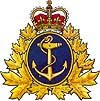
Okay... so here's the thing. We're here to provide information. You know, rules... regulations... stuff like that. We're NOT gameshow hosts, we're not bloody quizmasters, or anything like that. I mean, seriously... Do I look like friggin' Alex Trebek, here...??? Yet people still obviously spend hours of what could be productive time, dreaming up all manner of "what if" scenarios, whether to try and stump us or God knows what...
So M-A gets this call and as fate would have it, it's one of those tiresome, annoying as Hell TTY calls. You know, where you have to go through an interpreter that then types the responses both ways, for someone who can't simply come on line and speak. Normally these are for the deaf (Hence: TTY = Time To Yell), but today for some reason, it was to aid a "mentally-challenged individual", or whatever they call them nowadays. As it turned out, this was clearly a case of someone with too little knowledge and way-yyy too much time on their hands.
The main gist of the call, was if an individual is out on the water with a 4-seater pleasure craft, with four people onboard, each person having a lifejacket, and he all of a sudden has to 'rescue someone from the water'... Should he be stopped by a law enforcement official as he is returning to shore with the rescued person, what type of fine could he be liable to receive, since he has no lifejacket onboard for the recently-rescued survivor...?
No kidding, this was the question this person was asking. If he had any understanding about the Small Vessel Regulations of the Canada Shipping Act (as he is required to...), he would know that not having an extra lifejacket onboard is not the issue here. As the master of his vessel, regardless of it's size, he is held legally responsible for the safety and well-being of all aboard. If his Capacity Plate says he can carry a maximum of 4 people on his boat, he is jeopardizing the safety of all aboard, if he takes on that extra person. Remember also that the limitations of any vessel, are always calculated when taking into account fair weather and favorable water conditions.
So if you are involved in a collision on the water, or happen on the scene of one or an overturned boat, what should you do? What are you actually required to do?
Each vessel owner, operator or individual in charge involved in a marine incident (like a collision) should give his or her name, address and identification of the vessel to the owner, operator or individual in charge of any other vessel involved in the casualty, to any individual, injured, and to the owner of any property damaged.
Violating this requirement of course can carry a fine and/or imprisonment.
Be prepared to help others in trouble if at all possible. Remember that under the international laws and conventions, as a mariner you are required to. But do not take risks which could put your life or the life of your passengers in danger. Don’t panic, have life saving equipment ready and approach the accident carefully. Watch for persons in the water and throw floatation devices to those who do not have any. Talk to the people and assess any injuries they may have. Administer first aid if necessary and get the people to shore as quickly and safely as possible. Ummm... you DO have a first aid kit onboard, don't you...?
If you see a distress signal, (assuming you would recognize one if you saw one...), you should assist those in distress if you can do so without putting your vessel or crew at risk. If you cannot assist, make sure you notify the nearest boaters or authorities who can assist. This is when having an actual Marine VHF Radio comes in real handy.
Remember, don’t overload your own boat with too many people. If necessary, take victims requiring the most assistance into the boat and throw a line to the others and tow them slowly as you proceed. The Minimum Safety Equipment Requirements as laid out in the Small Vessel Regulations, are just that. The very minimum that you should have onboard. Experienced boaters know to always carry extras, just in case they are faced with such a situation. There is not much worse than seeing someone in dire peril, because neither you nor they were prepared.
If you do have room aboard for that extra person you've rescued, and for some reason you were not clairvoyant enough that morning to bring along that extra lifejacket, I don't imagine there is any law enforcement agency in this country that will actually ticket you, for helping to save someone's life... Let's face it... To think otherwise is just sick.
So M-A gets this call and as fate would have it, it's one of those tiresome, annoying as Hell TTY calls. You know, where you have to go through an interpreter that then types the responses both ways, for someone who can't simply come on line and speak. Normally these are for the deaf (Hence: TTY = Time To Yell), but today for some reason, it was to aid a "mentally-challenged individual", or whatever they call them nowadays. As it turned out, this was clearly a case of someone with too little knowledge and way-yyy too much time on their hands.
The main gist of the call, was if an individual is out on the water with a 4-seater pleasure craft, with four people onboard, each person having a lifejacket, and he all of a sudden has to 'rescue someone from the water'... Should he be stopped by a law enforcement official as he is returning to shore with the rescued person, what type of fine could he be liable to receive, since he has no lifejacket onboard for the recently-rescued survivor...?
No kidding, this was the question this person was asking. If he had any understanding about the Small Vessel Regulations of the Canada Shipping Act (as he is required to...), he would know that not having an extra lifejacket onboard is not the issue here. As the master of his vessel, regardless of it's size, he is held legally responsible for the safety and well-being of all aboard. If his Capacity Plate says he can carry a maximum of 4 people on his boat, he is jeopardizing the safety of all aboard, if he takes on that extra person. Remember also that the limitations of any vessel, are always calculated when taking into account fair weather and favorable water conditions.
So if you are involved in a collision on the water, or happen on the scene of one or an overturned boat, what should you do? What are you actually required to do?
Each vessel owner, operator or individual in charge involved in a marine incident (like a collision) should give his or her name, address and identification of the vessel to the owner, operator or individual in charge of any other vessel involved in the casualty, to any individual, injured, and to the owner of any property damaged.
Violating this requirement of course can carry a fine and/or imprisonment.
Be prepared to help others in trouble if at all possible. Remember that under the international laws and conventions, as a mariner you are required to. But do not take risks which could put your life or the life of your passengers in danger. Don’t panic, have life saving equipment ready and approach the accident carefully. Watch for persons in the water and throw floatation devices to those who do not have any. Talk to the people and assess any injuries they may have. Administer first aid if necessary and get the people to shore as quickly and safely as possible. Ummm... you DO have a first aid kit onboard, don't you...?
If you see a distress signal, (assuming you would recognize one if you saw one...), you should assist those in distress if you can do so without putting your vessel or crew at risk. If you cannot assist, make sure you notify the nearest boaters or authorities who can assist. This is when having an actual Marine VHF Radio comes in real handy.
Remember, don’t overload your own boat with too many people. If necessary, take victims requiring the most assistance into the boat and throw a line to the others and tow them slowly as you proceed. The Minimum Safety Equipment Requirements as laid out in the Small Vessel Regulations, are just that. The very minimum that you should have onboard. Experienced boaters know to always carry extras, just in case they are faced with such a situation. There is not much worse than seeing someone in dire peril, because neither you nor they were prepared.
If you do have room aboard for that extra person you've rescued, and for some reason you were not clairvoyant enough that morning to bring along that extra lifejacket, I don't imagine there is any law enforcement agency in this country that will actually ticket you, for helping to save someone's life... Let's face it... To think otherwise is just sick.
















No comments:
Post a Comment